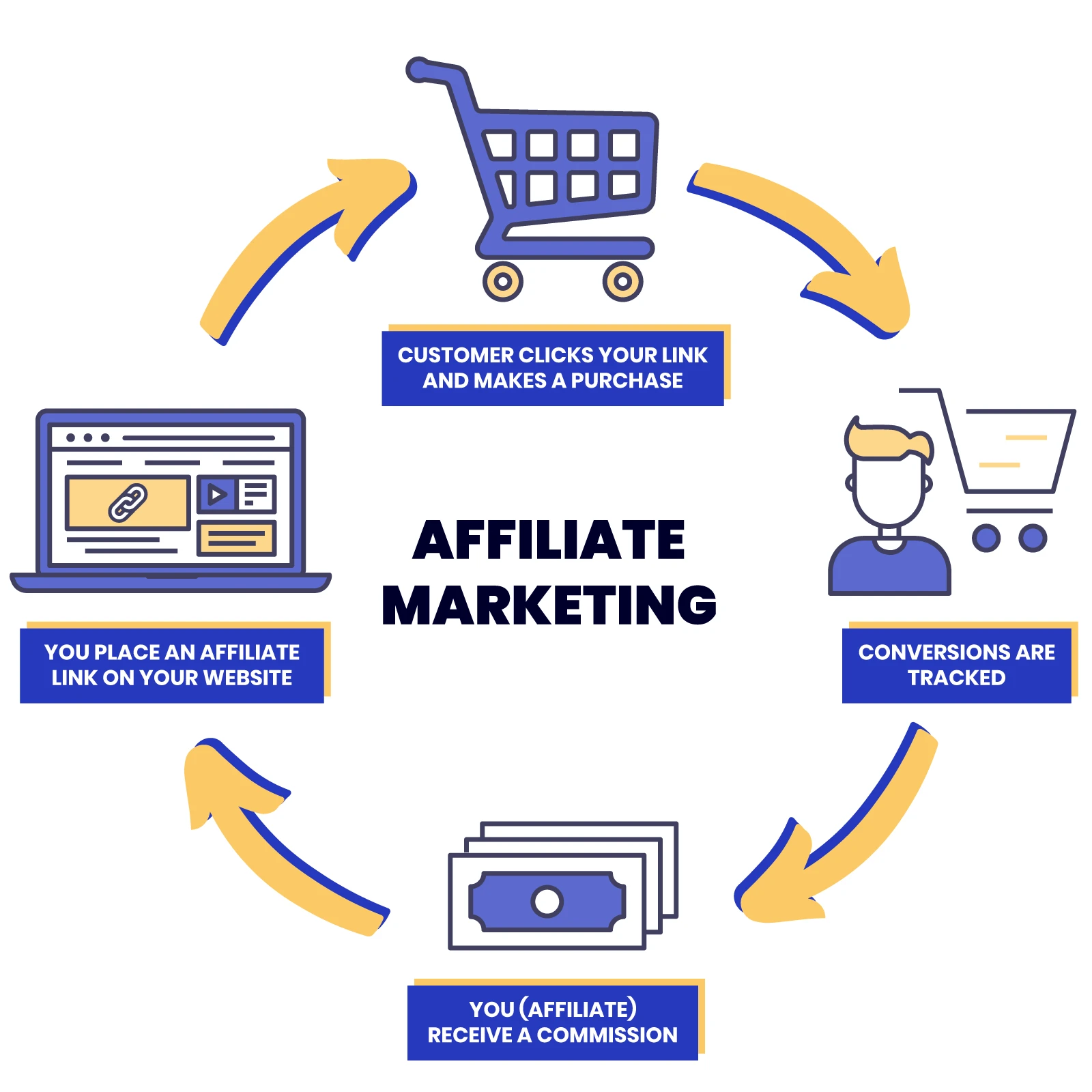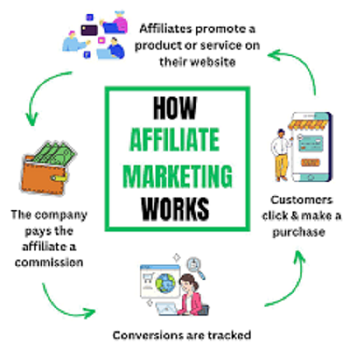Affiliate marketing is a performance-based business model where an individual (the affiliate) earns a commission by promoting a company's products or services and driving traffic or sales to the company's website. Affiliates act as middlemen, using their websites, blogs, social media accounts, or other online platforms to generate leads, clicks, or sales for the merchant (the company offering the product or service).

⇾ No need to create or manage products, which lowers the entry barrier for affiliates.
⇾ Once the affiliate marketing setup is done, affiliates can earn money with minimal ongoing effort.
⇾ Affiliates can work from anywhere and choose their own working hours.
⇾ Merchants handle customer service, shipping, and returns, leaving affiliates to focus on promotion.
⇾ Affiliates can promote multiple products across various platforms, increasing their potential earnings.
⇾ Merchants pay for results (sales or leads), making affiliate marketing a cost-effective way to drive revenue.
Merchant (Advertiser/Brand):The company or business that owns the product or service being promoted.
Affiliate (Publisher):The individual or entity promoting the merchant's products, using a unique affiliate link to track referrals.
Customer:The person who clicks on the affiliate link and takes action (e.g., makes a purchase or signs up).
Affiliate Network: Often acts as an intermediary, providing the platform and tracking for affiliates and merchants. Examples include platforms like ShareASale, CJ Affiliate, and Amazon Associates.

We strongly believe Practical Knowledge is needed to implement strategies. We designed this Content Marketing Training program where you spent 2+ hours on Practical�s. Learn various Content Marketing tools with hands on Practical�s.
Not a member yet?
Register nowAre you a member?
Login now